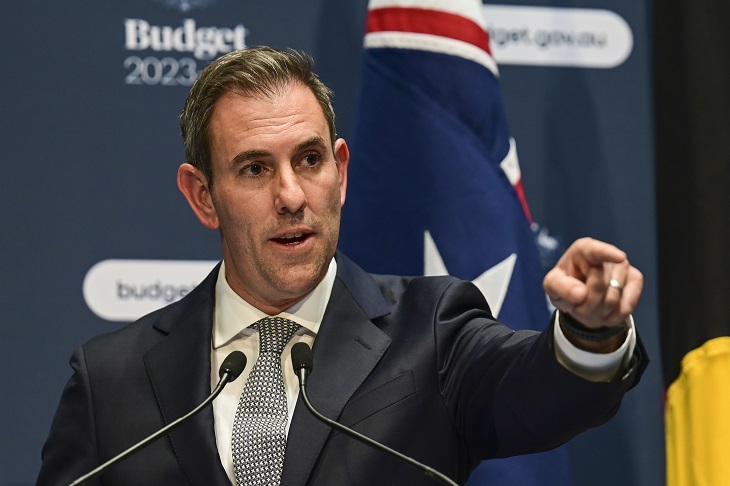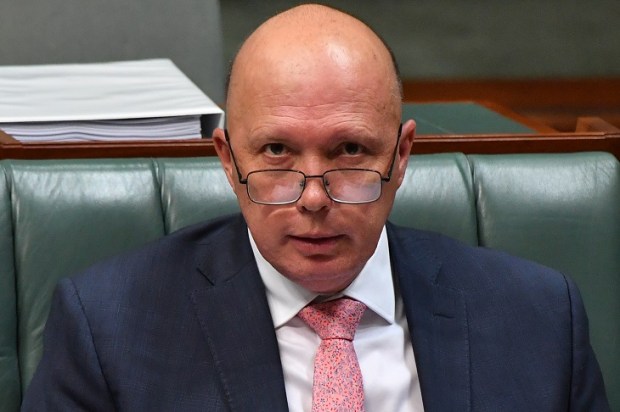With the Voice Referendum ‘done’, it’s now both possible and necessary to recognise and understand the broader ‘revolutionary’ agenda that is the gameplay of the Albanese Labor government.
The Voice was an attempt to make a ‘revolutionary’ change to the legal structure of the Australian Constitution and, from that, the institutions under which we are governed and allowed to lead our lives.
The broader revolution runs alongside and is consistent with the Voice agenda and is about legal transformation – capturing core institutions and then, through that, transforming Australia.
Focus should return to Labor Treasurer Jim Chalmers’ long article published earlier this year. In it, he committed to a ‘revolution’ of Australian capitalism without being specific about what that meant. But specifics are now emerging. Take just three initial examples.
The Reserve Bank of Australia is being totally reconstituted in its structure and objectives. That is, the processes and criteria upon which Australia’s interest rates are to be determined are being revolutionised.
The Productivity Commission (the government’s primary economic think-tank) is likewise undergoing huge changes in structure and objectives. Expect its analysis and advice to government to take on a very different colour from the past.
Quite obviously the entire structure and operation of power generation is being turned upside down. It’s a ‘climate’ revolution, but one dependent on a revolution to the financing of power generation and distribution.
But I ask you now to give laser-focused attention to the government’s Fair Work Legislation Amendment (Closing Loopholes) Bill 2023 (the Loophole Bill) currently before Parliament (October 2023).
Where the Voice targeted the Constitution, the Loophole Bill targets the very legal basis of commercial and contract law in Australia, usurping and neutering the authority of the High Court and the competition regulators in these areas. Running with this is the greatest attack against small business we’ve ever seen. Staggeringly, the Bill includes an assault upon the incomes of millions (yes, millions) of lower-paid Australian employees.
That’s a pretty bold assertion. But where the Voice was bereft of detail, the Loophole Bill is detail-heavy, even ponderously so. The Bill’s 284 pages are complex and dense in both structure and legal language – designed, it can be assumed, to confuse and mask its true intent. To understand the Bill, it was necessary to break it into its ‘bits’. From this, the overarching thrust of the Bill was revealed, with sub-agendas layered beneath.
The Bill is so detailed that several articles are needed to reveal the extent of its ‘revolutionary’ ambition. This article is to provide an overview. Follow-up articles will detail the revolutionary ‘bits’.
The Bill is branded and promoted by the government as ‘closing loopholes’. If ever there were a case for action against misinformation and disinformation, this one stands out.
Instead, the headline objective of the Bill is demonstrably an assault against the base root of how the Australian economy operates.
The most significant proof supporting this statement is that the Bill itself clearly states its intention to repudiate, neuter, and overturn the declaration made by the High Court in February 2022 on what constitutes commercial and employment contracts. The High Court must be ignored, according to this Bill. That is, the Bill seeks to revolutionise by statute the very common law definition of the commercial contract upon which our economy is based.
The ‘revolutionary’ agenda unfolds further. The Bill declares that a commercial contract (the contract small business people use) is an employment contract. This is legislative trickery. It takes an additional tack by inventing a new term: ‘employee-like’. It says that self-employed, independent contractors ‘look like’ employees, so we (the government) are going to declare them to be employees. Within this agenda, the government intends to close down independent truck-driving in Australia – a long-held Labor and Transport Workers Union ambition!
The Bill is based on an underlying position that no individual Australian has the capacity, maturity, intelligence or wit to earn their income through the commercial contract. In effect it ‘says’ that Australians are incompetent halfwits who must be denied their right and capacity to be self-employed, to be their own boss.
It is a Bill that denies the spirit of aspiration, ambition and ‘get up and go’ that so defines much of what it means to be human. If the Bill becomes law, the impact will be that 1.2 million self-employed people will be declared to be employees. This will kill incomes.
And there’s more, much more. The Bill will have the effect of commercially killing the gig economy. The outcome is that the 970,000 Australians who use gig economy work for top-up income will have their incomes trashed. But the government is also attacking casuals.
Effectively some 2.8 million people working as casuals will be forced to become full/part-time employees. Casuals earn 6 per cent more than full/part-time workers. They will lose this additional income. Casual workers on minimum pay will lose up to $3,062 a year. If they are on average pay, they will lose up to $5,354 a year.
That is, the Albanese government is engaged in a massive attack against people’s incomes.
However, unlike the Voice, where all voting-age Australians had the opportunity to vote ‘Yes’ or ‘No’, the decision on the Loophole Bill rests with seven independent Senators.
The Bill is currently before a Senate Committee Inquiry. It will be up for debate/vote in the Senate from February next year (2024). Unsurprisingly, the Transport Workers Union is at the forefront of lobbying and has found some ‘friendly’ industry bodies and businesses to provide the appearance of ‘business’ support.
To sum up: the structure of the Bill overrides the High Court’s determinations on ‘employee vs self-employment’. It breaches Australia’s International Labour Organisation obligations to protect the status of self-employment. It overrides Australia’s competition laws and limits the power of Australia’s competition regulator (the ACCC). It defines the commercial contract as an employment contract. It regulates self-employed people as employees. It regulates digital platforms (the gig economy) to remove their commercial basis. It regulates owner-drivers as employees. It attacks the incomes of casual workers.
If passed, the Loophole Bill will change significant aspects of our society the day after it receives Royal Assent. But further, it creates a legislative environment enforced by institutional might to drive an Albanese government revolutionary agenda, an agenda already declared by Treasurer Jim Chalmers.
Ken Phillips is Executive Director of Self-Employed Australia and publishes on Substack.
Got something to add? Join the discussion and comment below.
Get 10 issues for just $10
Subscribe to The Spectator Australia today for the next 10 magazine issues, plus full online access, for just $10.

























Comments
Don't miss out
Join the conversation with other Spectator Australia readers. Subscribe to leave a comment.
SUBSCRIBEAlready a subscriber? Log in